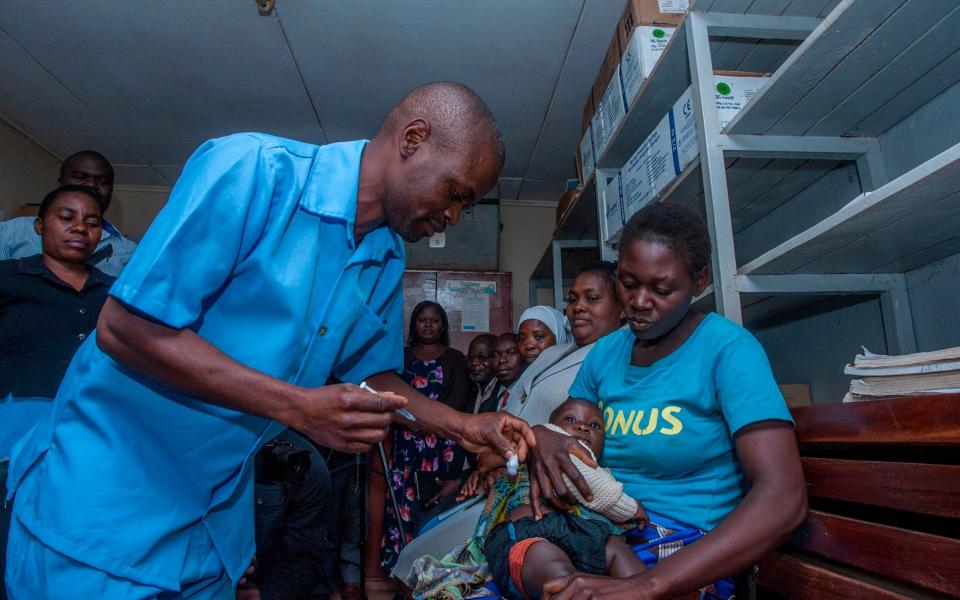Malaria spraying programme slashes number of deaths among young children

A programme to eradicate the mosquito that transmits malaria has slashed rates of the deadly childhood disease among children in a remote part of Malawi.
The Mulanje Mission Hospital in the south east of the country, in partnership with the International Vector Control Consortium and private sector partners, began a programme of indoor residual spraying (IRS) - where the interior walls and ceilings of houses are sprayed with long-lasting insecticide at the beginning of each malaria transmission season - in four villages in the local area in 2012.
The number of villages with some form of mosquito control has gradually increased so that now all 74 villages in the hospital’s catchment area, covering around 85,000 people, are covered by either spraying, the larval source management as well as insecticide treated bed nets.
In 2017, larval source management - where mosquito breeding sites are targeted - was added.

According to an internal review of the scheme, in 2017-2018 there were 3.1 cases of malaria in children under five per village in villages taking part in the mosquito control project, compared to 13.3 cases per village in non-mosquito control areas.
And in 2018-19 the hospital recorded no deaths in children under the age of five from malaria, compared to 20 deaths in 2011 before the scheme had been implemented.
Malaria is a huge problem in Malawi, which recorded about five million cases in 2017. The majority of those who die from the disease are children.
Since the millennium, huge strides have been made in the fight against the disease globally. Infections dropped by 22 per cent between 2000 and 2015, while the number of deaths were cut from 864,000 to 429,000. But in recent years progress has stalled, and the number of cases rose by three million to a total of 219 million globally in 2017.

Dr Ruth Shakespeare, former medical director at the hospital, who set up the programme, said that in 2011 about a third of all the child deaths in the hospital were due to malaria.
“The hospital was absolutely chockablock with children with malaria during the main season for the disease. We had up to 70 admissions a day, two to three children in a bed and even children on the floor,” she said.
The scheme has been funded by a range of partners including the Good Little Company, a UK-based sausage manufacturer, 50 per cent of whose profits go to funding the scheme.
Dr Shakespeare said that the scheme was a good example of a bottom-up community programme, led by local people. All the people who do the spraying are from the local area and are known to the villages.

“The village chiefs name the people to do the spraying and the larval source management which means there’s a lot of trust. The hospital has 100 years of history working with the community in our area. We’re a trusted partner,” she said.
“We have shown that a programme can be rolled out by a small organisation in an area that’s remote and rural which maybe a big government programme can’t reach,” she said.
Dr Shakespeare said that the chemicals for spraying are provided at cost.
“If you look at the costs of malaria - not just health care but cost of missed agricultural production and missed education - the scheme is well worth it,” she added.
Stephen Twigg, who is stepping down as chairman of the House of Commons International Development committee, said the success of the scheme was “remarkable”.
“Indoor residual spraying is an important component of the toolbox against malaria, one of the world’s oldest diseases which still claims the life of a child every two minutes.
“The Mulanje Mission programme shows what can be achieved if we invest resources effectively at a local level," he said.

Protect yourself and your family by learning more about Global Health Security

 Yahoo News
Yahoo News 